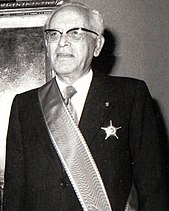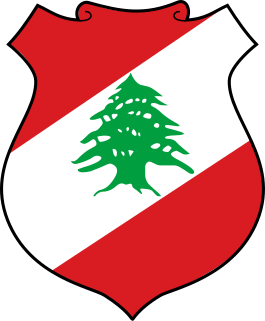Lebanon is a semi-presidential parliamentary democratic republic within the overall framework of confessionalism, a form of consociationalism in which the highest offices are proportionately reserved for representatives from certain religious communities. The constitution grants the people the right to change their government. However, from the mid-1970s until the parliamentary elections in 1992, civil war precluded the exercise of political rights. According to the constitution, direct elections must be held for the parliament every 4 years but after the parliamentary election in 2009 another election was not held until 2018. The Parliament, in turn, elects a President every 6 years to a single term. The President is not eligible for re-election. The last presidential election was in 2016. The president and parliament choose the Prime Minister. Political parties may be formed; most are based on sectarian interests. 2008 saw a new twist to Lebanese politics when the Doha Agreement set a new trend where the opposition is allowed a veto power in the Lebanese Council of Ministers and confirmed religious Confessionalism in the distribution of political power. The Economist Intelligence Unit classified Lebanon as a "hybrid regime" in 2016.

An electoral college is a set of electors who are selected to elect a candidate to a particular office. Often these represent different organizations, political parties, or entities, with each organization, political party or entity represented by a particular number of electors or with votes weighted in a particular way. The system can ignore the wishes of a general membership.
A member of parliament (MP) is the representative of the voters to a parliament. In many countries with bicameral parliaments, this category includes specifically members of the lower house, as upper houses often have a different title. Member of Congress is an equivalent term in other jurisdictions.
A motion of no-confidence, alternatively vote of no confidence, or (unsuccessful) confidence motion, is a statement or vote which states that a person in a position of responsibility is no longer deemed fit to hold that position, perhaps because they are inadequate in some respect, are failing to carry out obligations, or are making decisions that other members feel detrimental. As a parliamentary motion, it demonstrates to the head of state that the elected parliament no longer has confidence in the appointed government. If a no confidence motion is passed against an individual minister they have to give their resignation along with the entire council of ministers.

Émile Jamil Lahoud is a Lebanese politician who was President of Lebanon from 1998 to 2007.

The President of the Czech Republic is the elected formal head of state of the Czech Republic and the commander-in-chief of the Military of the Czech Republic. Unlike counterparts in other Central European countries such as Austria and Hungary, who are generally considered figureheads, the Czech president has a considerable role in political affairs. Because many powers can only be exercised with the signatures of both the President and the Prime Minister of the Czech Republic, responsibility over some political issues is effectively shared between the two offices.
Regular elections in Albania are mandated by the Constitution and legislation enacted by Parliament. The Parliament (Kuvendi) has 140 members elected for four-year terms. The electoral system is closed list proportional representation. There are 12 multi-member constituencies corresponding to the country's 12 administrative regions. Within any constituency, parties must meet a threshold of 3 percent of votes, and pre-election coalitions must meet a threshold of 5 percent of votes.

The Italian Parliament is the national parliament of the Italian Republic. It is the representative body of Italian citizens and is the successor to the Parliament of the Kingdom of Sardinia (1848–1861) and the Parliament of the Kingdom of Italy (1861–1946). It is a bicameral legislature with 945 elected members and a small number of unelected members (parlamentari). The Italian Parliament is composed of the Chamber of Deputies and Senate of the Republic. The two houses are independent from one another and never meet jointly except under circumstances specified by the Constitution of Italy.

The President of the Lebanese Republic is the head of state of Lebanon. The president is elected by the parliament for a term of six years, which is not immediately renewable. By convention, the president is always a Maronite Christian.

The National Assembly is the unicameral parliament and legislative body of the Republic of Bulgaria.

The Hellenic Parliament is the parliament of Greece, located in the Old Royal Palace, overlooking Syntagma Square in Athens. The Parliament is the supreme democratic institution that represents the citizens through an elected body of Members of Parliament (MPs).

Nassib Lahoud was a Lebanese-Christian political figure. He held various posts including Minister of State, Member of parliament and Ambassador to the United States of America. He was also head of the Democratic Renewal Movement and a leading figure in the March 14 coalition, which nominated him as their presidential candidate when they held the parliamentary majority in 2008. His election was vetoed by Hezbollah and its allies, who refused to attend parliament and threatened not to recognise any president who was not the product of a consensus agreement between Lebanese political forces. President Michel Suleiman was elected to the post on 25 May 2008.
The Presidium of Parliament is the group of individuals elected by the Hellenic Parliament to deal with the business of organizing and running the Parliament. This is provided for by Article 65 of the Constitution of Greece.
An indirect presidential election was held in the Parliament of Lebanon on 25 May 2008, after the term of incumbent President Émile Lahoud expired on 24 November 2007 at midnight. General Michel Sleiman, the Commander of the Lebanese Armed Forces, was elected as the consensus candidate after months of delays in holding the election due to an ongoing political dispute.
Emile Lahoud Jr., more commonly Emile Emile Lahoud, is a Lebanese politician and businessman.

A series of rounds in the Lebanese presidential election were held from 23 April 2014 until 31 October 2016. No candidate reached a two-thirds majority vote in the first round, and subsequent rounds failed to gain a quorum. Finally in the forty-sixth round held on 31 October 2016, Michel Aoun, a Member of Parliament and formerly a disputed Prime Minister and Acting President in a rival government near the end of the Lebanese Civil War, was elected with 83 votes in Parliament. He took office the same day as the 12th President of Lebanon since independence in 1943.

The Council of Ministers of Lebanon is the executive body of the Republic of Lebanon. Its president is the Prime Minister of Lebanon, and it appointed by the President of Lebanon with confirmation of the Parliament of Lebanon. It is generally equally composed of Muslims and Christians. The Council of Ministers is considered to be the "government" of Lebanon by the Constitution.

An indirect presidential election was held in the Parliament of Lebanon on 24 November 1989, resulting in Deputy Elias Hrawi being elected President of the Lebanese Republic.
An indirect presidential election was held in the Parliament of Lebanon on 5 November 1998, resulting in Deputy René Moawad being elected President of the Lebanese Republic.

An indirect presidential election was held in the Parliament of Lebanon on 5 November 1970, resulting in Deputy Suleiman Frangieh being elected President of the Lebanese Republic.















